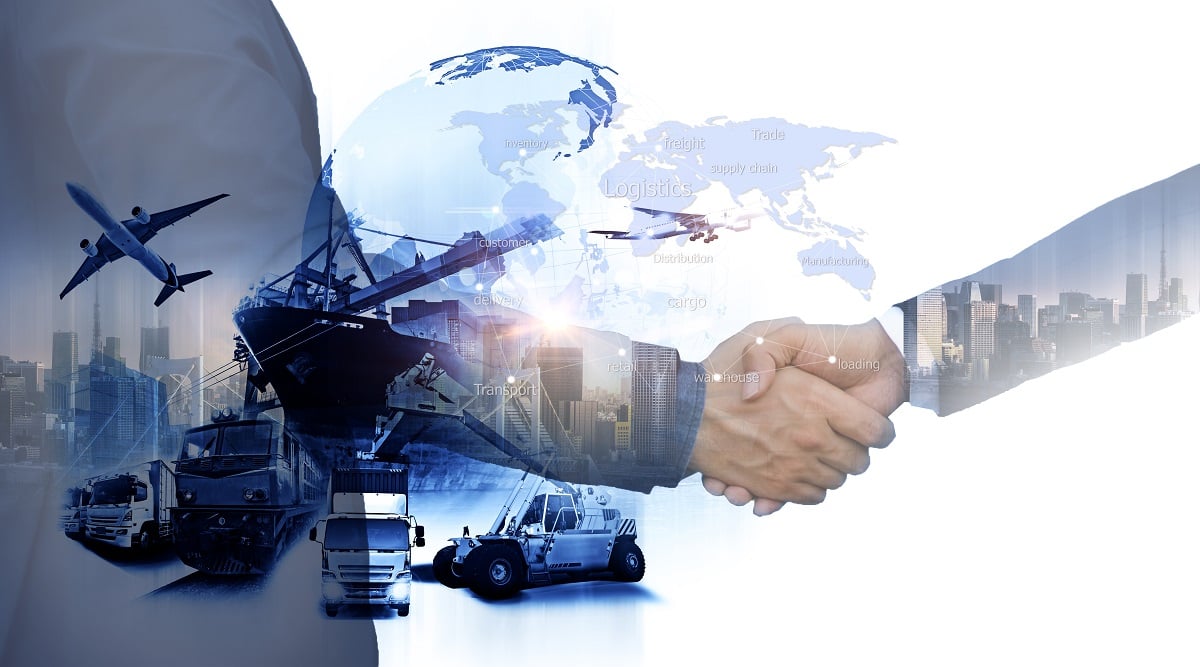Has the Corona crisis killed globalization of trade?
What about the Global Trade Post-Corona? What will happen? Will international supply chains change? Will there be a major shift in how we organize international value chains? Some experts are now predicting a paradigm shift towards national production, local and regional stockpiling, increased warehousing – and really a period of de-globalization. I think they are partly right and in the longer run - wrong.

We are not going back to normal post-Corona, we will see a new normal. Between 1990 and 2007, global trade grew faster than the global economy, it is not doing that anymore.
There are already new concepts emerging in international trade, we talk about moving from ‘Just-in-Time’ to ‘Just-in-case’. Meaning that trade will seek even more predictability than before and that there will be a greater focus on scenario planning and backup models. An example could be to use multiple sub-suppliers for key components rather than just one or a few. There will likely be a re-introduced Government focus on having more extensive preparations for different types of crises, including keeping stock and reserves of crucial material.
.jpg?width=742&name=blog%20photo%20(002).jpg)
The German magazine Der Spiegel recently had an article named, ’The Beginning of De-Globalization? What is the Future of Our Global Economy?’ They wrote, “…even before the pandemic, globalisation was in trouble. The open system of trade that had dominated the world economy for decades had been damaged by the financial crash and the Sino-American trade war. Now it is reeling from its third body-blow in a dozen years as lockdowns have sealed borders and disrupted commerce”. “The corona crisis is changing the global economy. Production security is growing more important than efficiency”. I recommend you to read the article, it is really worth reading.
In addition to these challenges, we are soon to see the effects of Brexit, which will have winners and losers too.
So has Covid-19 and the Corona crises killed globalization of trade? No, based on my thirty-five years of experience from customs, borders and international trade policy I don’t think so - but it has changed how global trade will continue to grow. Many of my peers and research colleagues share this view. We will see new solutions. It is in times of trouble, innovation prospers.
Yes, we will see customs and trade move into the boardrooms as a strategic element for all companies to seriously consider as a top agenda item.
Yes, we will see a move from ‘Just-in-Time’ to ‘Just-in-Case’ where companies will increase their compliance, predictability and supply chain certainty with additional back-up systems and alternative planning, like i.e; diversification of value chains, multiple supplier strategies, alternative routes planning, additional warehousing, back-up production, delivery models and stockpiling near markets.
Yes, security will become more important than before, but more important than price?
I am not so sure.
The force of globalization based on underlying behaviour patterns of people is so immense that we will see trade globalization continue also post-Corona. Its main drivers are still valid. I do believe that we will see companies seek safer and more predictable alternatives. Especially in a short to midterm perspective. Then we will see more of what we have seen before again since trade recovery will be the main feature of all post-corona financial recovery strategies.
Some changes concerning global trade are here to stay, others are not. How fast will this go? Nobody knows. I once was in a meeting in Stockholm during the global financial crises in 2009. I heard a Nobel laureate in Economic Science ((NMPES) being asked how we could solve the global financial crises? He answered: "I have absolutely no idea. This has never happened before. But next time it happens I will know and I will give you an answer”. Nobody knows when the global economy will recover from the pandemic, but this time it is not our financial systems that were broken.
Has the Corona crisis killed globalization of trade? I think that anybody believing that will - sooner rather than later - be surprised.
---
Lars Karlsson, CEO/MD of KGH Global Consulting


